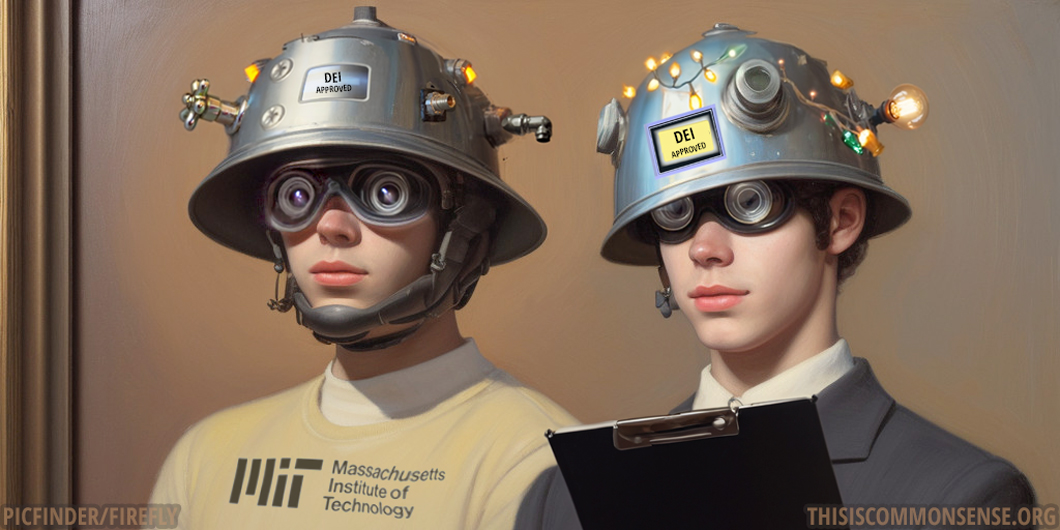The good news?
The Massachusetts Institute of Technology will no longer require applicants to make DEI statements.
MIT President Sally Kornbluth says the school can “build an inclusive environment in many ways, but compelled statements impinge on freedom of expression, and they
Correct on both counts, but a bit blah as indictments go. And inadequate. Forget “inclusive.” This is merely a pledge to refrain from being arbitrarily exclusionary.
But the new policy is better than the status quo.
DEI (“diversity, equity, and inclusion”) may sound innocuous, at worst pointless. But DEI guidelines have functioned as a particularly odious form of ideological litmus test. The goal has been to force instructors to toe certain leftist (or collectivist) ideological lines as if the ideas imposed were as self-evidently true as declarations that the cloudless sky is cerrulian blue.
For example, if you dare disagree that race-conscious “antiracist” policies making skin color — and maybe also “gender” — more important than quality of work or some reliable leading indicators of productivity, your views may put you on the wrong side of the DEI divide.
So MIT’s dropping of mandatory DEI-fealty statements is a big step in the right direction. By as prestigious an institution of higher learning as any in
The bad news?
MIT has apparently not fired the “diversity deans” that it hired in 2021 — and hired not on the basis of excellence of qualifications: serious plagiarism complaints have been filed against two of
If MIT retains six “diversity deans” in place, able to run around causing trouble for those faculty who reject DEI edicts, it hasn’t purged itself of the poison quite yet.
This is Common Sense. I’m Paul Jacob.
Illustration created with PicFinder and Firefly
—
See all recent commentary
(simplified and organized)

7 replies on “Letting DEI Die”
Even in cases in which the DEI staff have been riffed, these changes are somewhat a matter of closing barn doors after the horses have escaped. Faculty hirings in each department are largely in the hands of those already on departmental faculty. Even before DEI, departments would develop ideologic commitments, and then sustain those commitments by selecting new faculty who had those same commitments or seemed sufficiently impressionable to develop them. DEI has left in its wake a faculty selected for ideologic posture. Those who were and remain sincere will seek to obstruct the hiring of new faculty with contrary ideas.
Still, the situation in which a prospective employee must swear to such commitment is more dire, and formal statement of principles is more difficult to overcome than a looser expression of dogma.
Struggling to figure out if DEI is more racist (soft racism of low expectations), or just unconstitutional.
What are ‘compelled statements’ and who is required to make them? It’s not clear that DEI will ever die. It has taken root in education and in business. It will always be a factor in whatever decisions are made going forward, regardless of what official policies are enacted. DEI can’t be undone. You can’t kill an idea.
Going back underground. MIT’s policies will have to be watched. DEI would not have survived Constitutional scrutiny anyway. Its soldiers remain to continue the war.
Thus far improvement, but not correction.
As to DEI, I prefer the alternate definition:
Didn’t Earn It.
Another appropriate definition I came across: Discrimination Exclusion Indoctrination.
Tell it like it is, Amen!
These frigging orcs are high on their own supply and should be forcibly detoxed in a mostly peaceful manner.